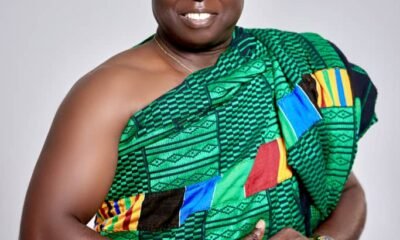News
Kpone Katamanso Imams call on The Spectator, Ghanaian Times Editors
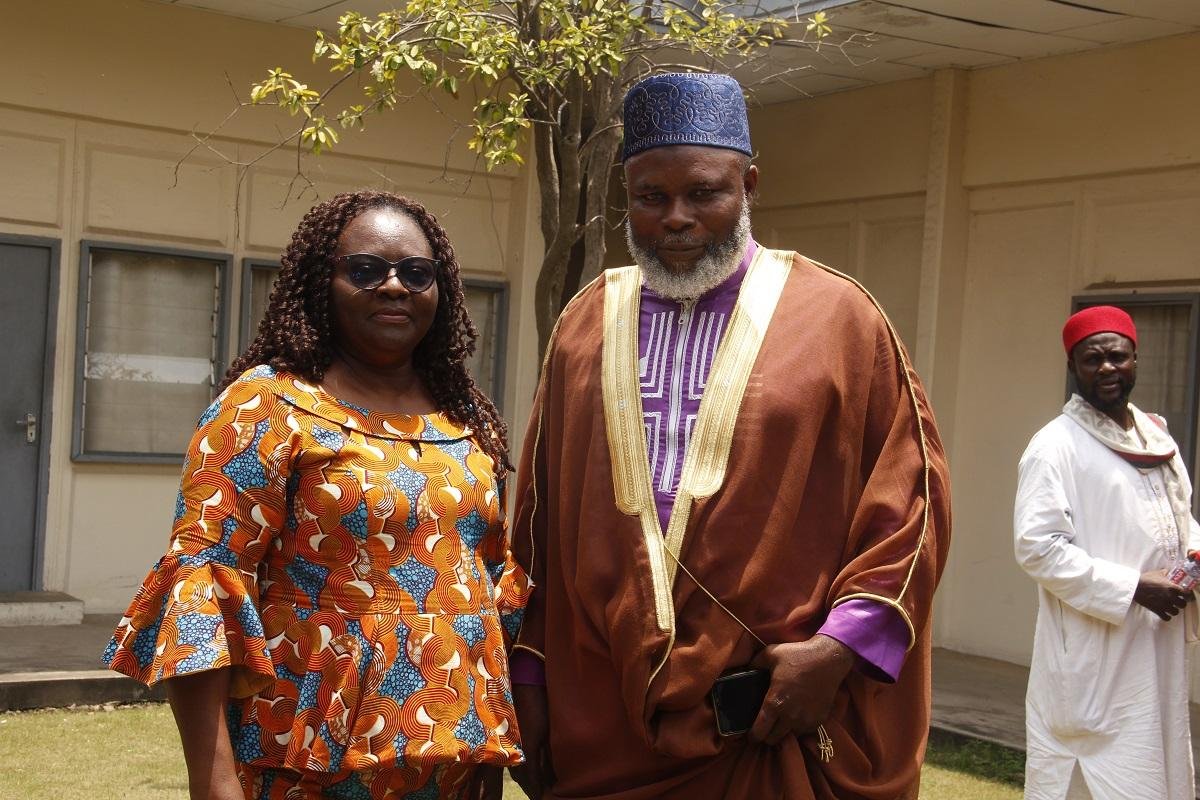
Leaders of the Muslim community in the Kpone- Katamanso Metropolitan area on Wednesday called on the editors of the state-owned newspapers, The Ghanaian Times and The Spectator, and called for stronger collaboration to deal with some of the societal issues that confront them.
The visit was to first of all introduce the Muslim clerics in the area and also ensure a fair representation of Muslims’ perspectives on national discourse.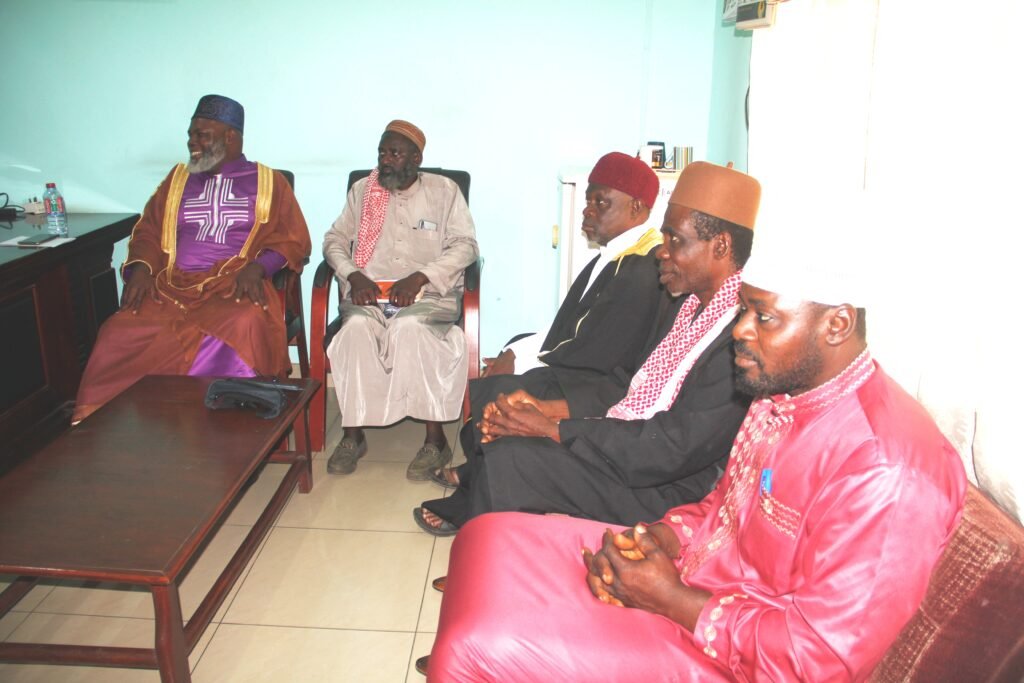
Both parties discussed issues of content balance, community development, and partnership opportunities.
The delegation, led by the Metropolitan Imam, Alhaji Saeed Abdulai, said the Muslim community in Kpone Katamanso alone estimated to be over 620,000, well-structured and plays an active role in both civic and religious life.
He disclosed that the community has been divided into 18 zones, each led by a zonal Imam, with the Municipal Imam serving as the head.

“We have a constitution, and we work closely with the assembly, central government, and traditional authorities. Our presence is strong, and we want the media to reflect that,” the Imam stated.
Alhaji Abdulai further stressed that the Muslim leadership in Kpone Katamanso operates in a democratic and accountable manner, mirroring Ghana’s own political system.
He also stated that zonal Imams were eligible to rise to the position of municipal Imam, and the leadership regularly engages with government, civil society, and traditional leaders to promote peace and development.
Recently, the Municipal Imam received a certificate of recognition from a local chief during a youth gathering, a testament to the cordial relationship between Muslims and traditional authorities in the area.
“Our community is disciplined, organised, and proactive. We believe the media should showcase these positive stories instead of leaving gaps that are usually filled by stereotypes or misinformation,” he added.
Quoting a verse from the Qur’an, one of the leaders reminded us that all humans were created from a single source and must, therefore, treat each other as brothers and sisters, irrespective of religion.
On her part, the Editor of The Spectator, Mrs Georgina Naa Maku Quaittoo, welcomed the initiative and expressed readiness to collaborate with the Muslim community.
She indicated that the papers remain committed to inclusiveness and community development.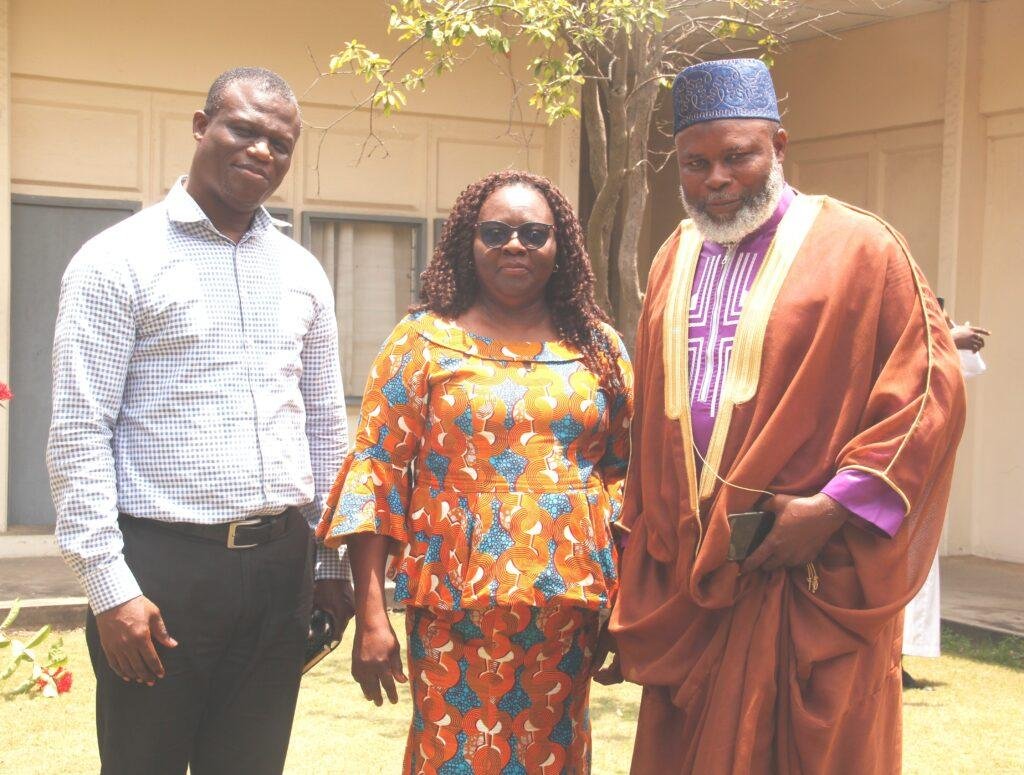
The Editor of The Ghanaian Times Alhaji Salifu Abdul-Rahman, expressed concern about the growing influence of social media in shaping public opinion, warning that many online platforms often spread misinformation about religion.
“Social media is full of half-truths. We prefer the credibility of the established press. If issues are reported by The Times or Spectator, they carry weight,” he said.
Practical partnership ideas were also discussed, including establishing newspaper stands in Muslim-dominated communities such as Ashaiman, Nima, and Madina, to create space for regular opinion pieces by Muslim scholars. “If our readers in these communities know their voices are represented in the pages of The Times or Spectator, it builds both trust and readership,” the editor added.
Both sides agreed to continue the dialogue and build a long-term partnership that would give voice to Muslims while also strengthening interfaith understanding.
The Muslim leaders pledged to provide regular articles for publication, while the newspapers assured them of space to promote peace, inclusion, and national development.
They pledged to contribute accurate and insightful content on Muslim perspectives, festivals, and social development efforts, so that the wider Ghanaian public would gain a more balanced understanding of the faith.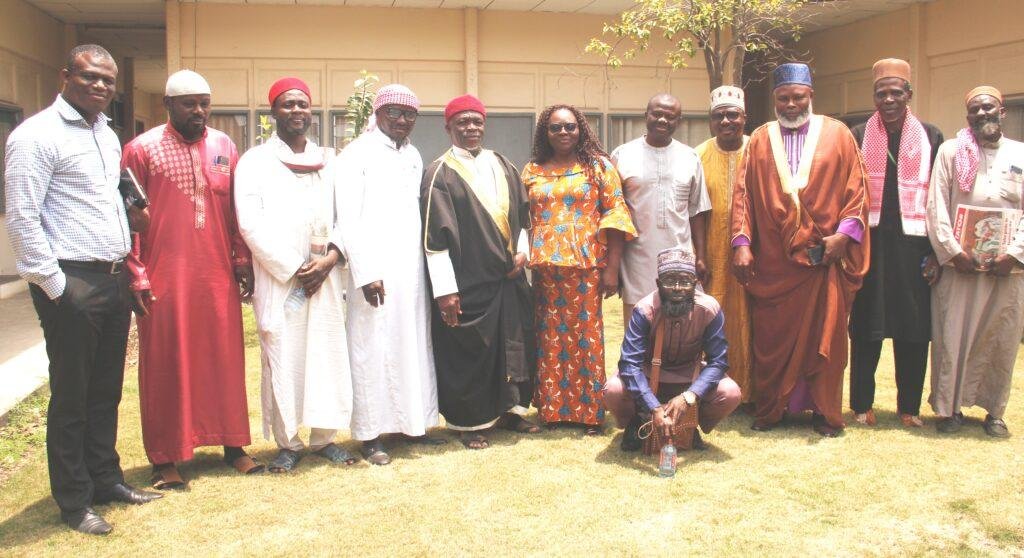
The delegation included imams from various communities within the Kpone Katamanso Metropolitan Assembly.
They included Mustapha Abdul Wahaab, Appolonia, Mohammed Rufai, Peaceland, Mohammed Aminu Masud, Washington and Sa-id Mukhtar Abubakar, New Zealand.
The rest Shafiu Jibril, Washington, Salih Usman, Chief, Washington, Salis Abubakar, Zenu and Soalihu Mohammed Awal, Kpone-Bawaleshie.
By Esinam Jemima Kuatsinu
News
Damango wages war on shisha smoking among minors

Troubled and anxious citizens in Damongo of the Savannah Region have expressed concerns about the number of young people, believed to be under the age of 18, involved in ‘shisha’ smoking in pubs and drinking spots within the township.
Eyewitnesses say the minors were seen patronising nightlife venues, where Shisha smoking happen in the open.
The situation has sparked renewed public concern over the enforcement of child protection laws and regulations governing the operations of entertainment centres in the municipality and country as a whole.
An eyewitness, who spoke to The Spectator on conditions of anonymity for security reasons, noted that the situation was becoming increasingly common.
“This is not a one-off incident. It is becoming very common, but residents like us cannot openly report or speak about it because our lives will be at risk,” he said.
Under Ghanaian law, minors were prohibited from patronising Shisha.
Public health experts have consistently warned that shisha use exposes users to harmful substances that can negatively affect brain development, respiratory health, and overall well-being, particularly among young people.
The residents believe the alleged incidents point to broader challenges relating to youth supervision, substance abuse, and weak enforcement of existing regulations and have called on municipal authorities, security agencies, and regulatory bodies to intensify monitoring of pubs and entertainment centres to ensure compliance with the law.
In an effort to address the menace, Mr Salisu Be-Awurbi, the Savannah Regional Minister, has led public education campaigns, engaged security agencies, and supported enforcement actions to address the rising use of illicit substances in the region.
Wura Kelly Seidu Boresah I, the Chief of Damongo, has also called on all stakeholders including parents, community leaders, institutions, and young people to actively support efforts to curb drug abuse, warning that the rising consumption of hard drugs poses a serious health threat to the future of the youth in the Savannah Region.
He also cautioned individuals involved in the sale and distribution of illicit drugs to immediately desist from the practice, stressing that offenders will face arrest and prosecution in accordance with the law.
From Geoffrey Buta, Damongo, Savannah Region
Join our WhatsApp Channel now!
https://whatsapp.com/channel/0029VbBElzjInlqHhl1aTU27
News
Ga Mantse endorses initiative to end domestic voilence

Dr Theresa Baffour, an advocate for ending violence and Chief Executive Officer (CEO) of SAHM SAHW Foundation, has said that society plays a critical and pivotal role in breaking the cycle of domestic violence.
According to her, domestic violence is a major contributor of making women, who are mostly the victims, mentally derailed and unable to engage in economic activities.
She said this when the foundation called on the Ga Mantse, Nii Tackie Teiko Tsuru II, to solicit support for the initiative by the “Strong and Healthy Minds, Strong and Healthy Women” (SAHM SAHW) to combat domestic violence within the Ga State.
The visit was occasioned by the fact that domestic violence cases have become quite prevalent in the Ga communities and is retarding growth.
According to her, the canker was an impediment to national development because the victims were usually tortured and would have to go through series of therapies to return to the right state of mind.
Dr Baffour mentioned that Gender-Based Violence (GBV) places a mental toll on women, and was, therefore, important to break the cycle through comprehensive mental health support, crisis intervention and empowerment programmes in communities with high rates of GBV.
This intervention, she underscored, would help in empowering the denigrated victim of domestic violence to soundly heal, build and thrive.
Dr Baffour added that the initiative would provide holistic, trauma-informed mental health care and advocacy for young women affected by domestic violence.
According to her, the above statement would create safe spaces for healing and equipping them with entrepreneurial skills for renewed hope and empowered life.
The Ga Mantse pledged his support for the laudable initiative to combat domestic violence and also acknowledged the need to address it in the Ga State.
Further endorsement came from Justice Julia Naa-Yarley Adjei Amoah, Chief of Staff at the Office of the Ga Mantse, as she commended the team of SAHM SAHW Foundation for taking a bold step to end the canker in the Greater Accra.
She added that it was a step in the right direction to save vulnerable women from torture, stress and emotional abuse.
By Alfred Nii Arday Ankrah

